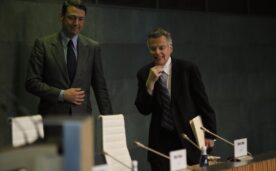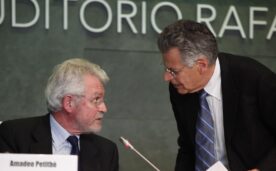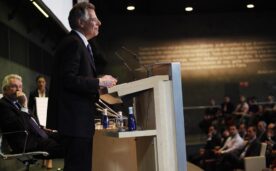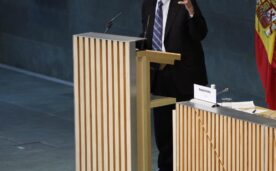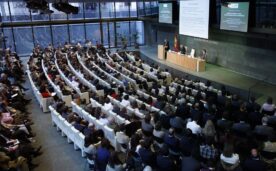On 27 March 2012, the Rafael del Pino Foundation hosted the Keynote Lecture "Global Macroeconomics. Implications for investment", given by Professor Myron S. Scholes, Nobel Prize in Economics in 1997.
Myron S. Scholes argued that there should have been "a self-regulatory move by the financial industry to "realise that they were not aware of all the implications and ramifications that could come from putting exotic or complicated financial instruments on the market" and that the industry should ultimately have decided not to issue them: "There are certain investment products that cannot be described by a model or a formula or cannot be fully understood by clients, because there are so many elements of uncertainty that can affect the value of those products. For example, if an investment bank like Goldman Sachs makes a 200 million profit on a structured product, someone has to lose that 200 million; there is no possibility of making that profit without generating a loss. Clearly, this system does not create the right incentives for investment banking. I hope that the new regulation affecting this type of product will set limits or at least inform clients that there are many possibilities involved in the value calculation of the instrument in question and that, although the profitability of the instrument can be very high, there are at the same time many possibilities that losses can occur.
Myron S. Scholes also analysed the differences in competition in Europe: "The benefit of the European Union is in having a common market and a common culture, in having eliminated the possibility of new wars on the continent. But, in return, the problem created by the differences in competitiveness between EU member countries by sharing a single currency means that adjustments have to be made through wages and asset prices rather than through currency depreciation. This is the only adjustment mechanism in this scenario and European countries need to understand this, but they also need to consider how to manage the problems that this creates.
